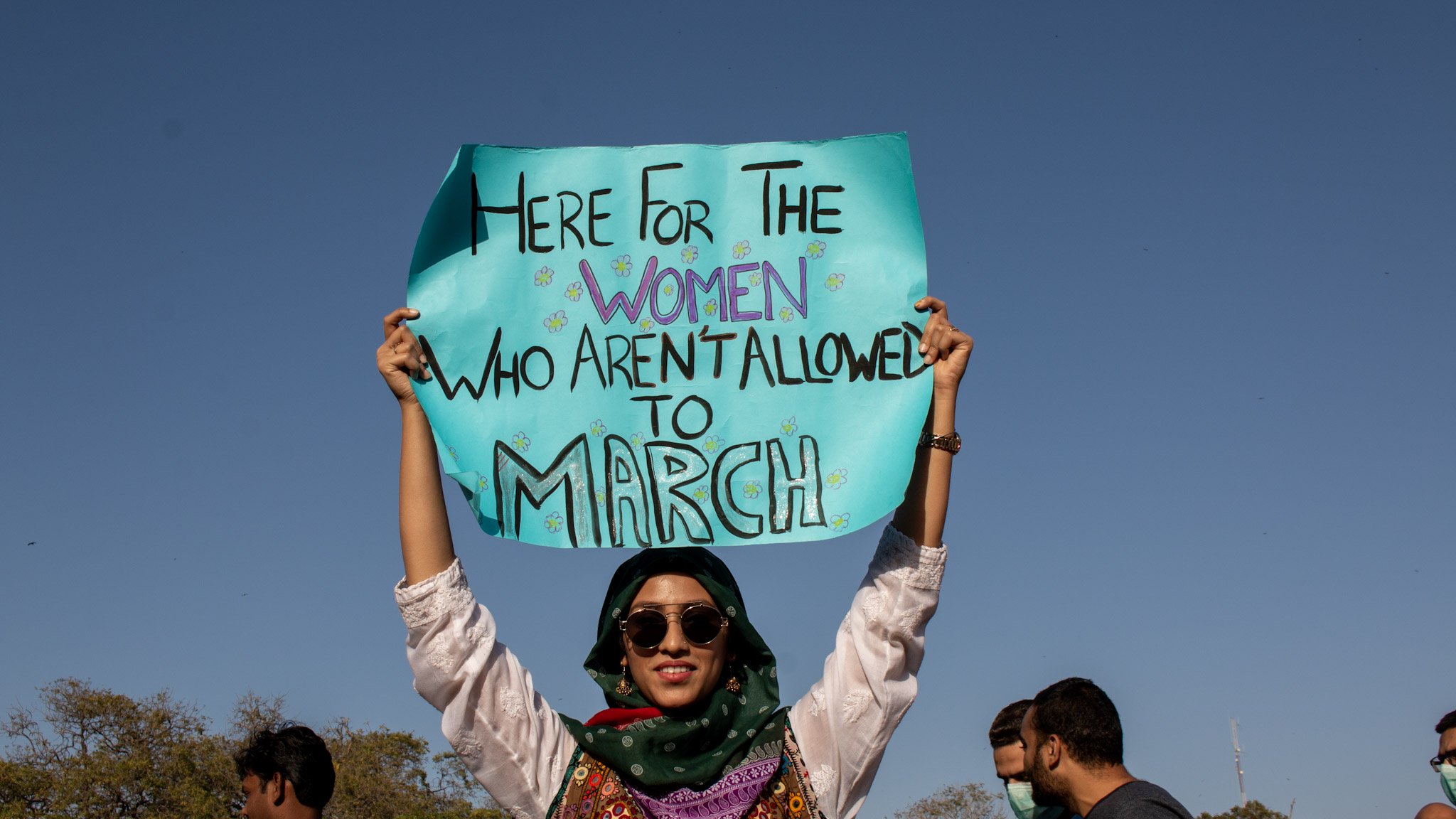
Despite unprecedented backlash, thousands of women dared to come out of their homes and marched through the streets of Karachi, Pakistan on March 8, 2020 - each with a similar quest and voice.
These photographs of the growing resistance are a testament to the plight of women and hope to quell the narrative that women are being ‘disrespectful’ if they march.
These are their stories.
Poetic justice
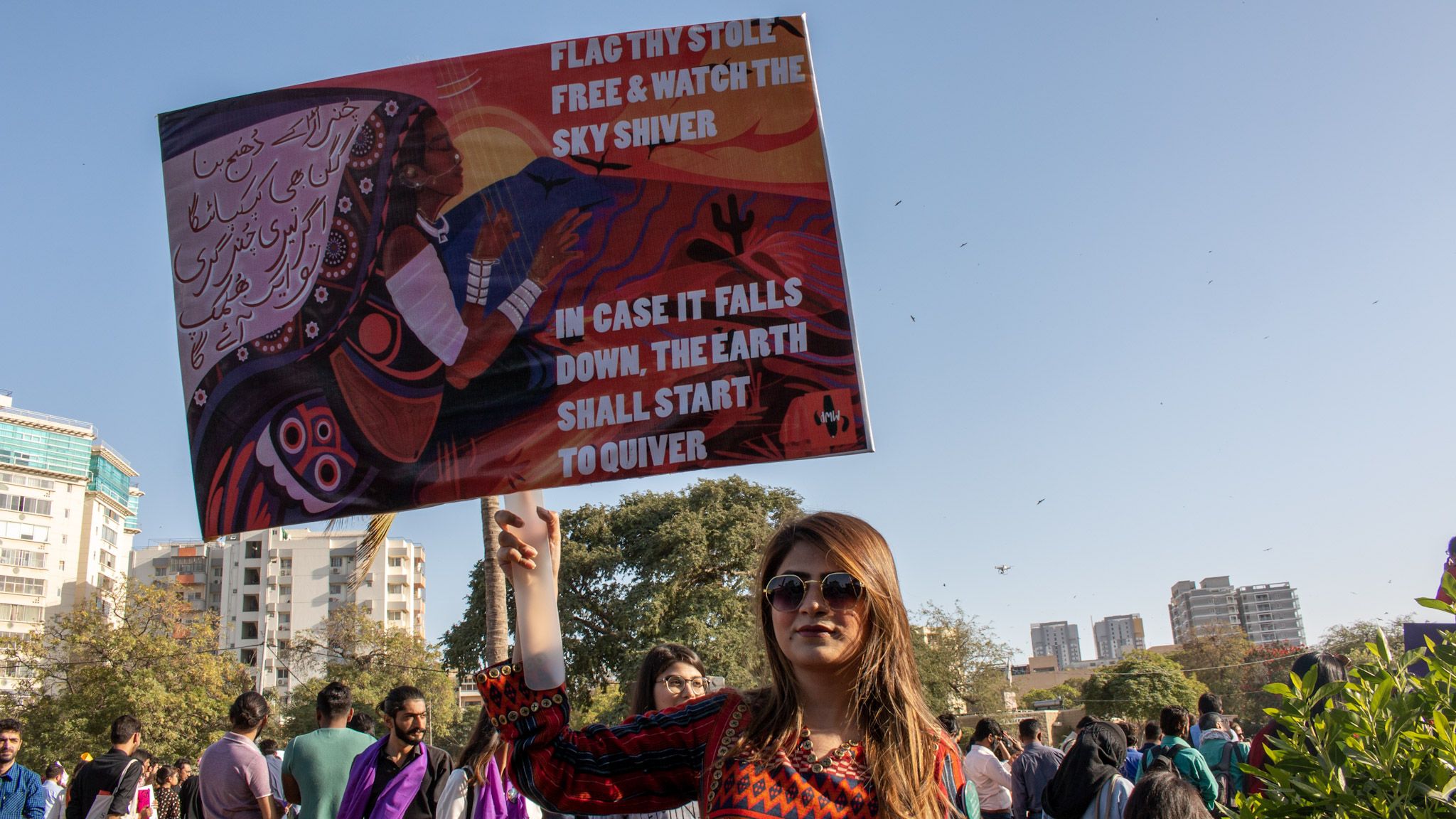 Nisha Khwaja recited a poem that she felt explained the cause brilliantly. "The chains that cuff you, don't think of them as your clothes. Melt these chains, and make them your weapon. Burn and incinerate the web of atrocity around you. You aren't the holy flame of worship, but a fire of anger."
Nisha Khwaja recited a poem that she felt explained the cause brilliantly. "The chains that cuff you, don't think of them as your clothes. Melt these chains, and make them your weapon. Burn and incinerate the web of atrocity around you. You aren't the holy flame of worship, but a fire of anger."Domestic help for basic rights
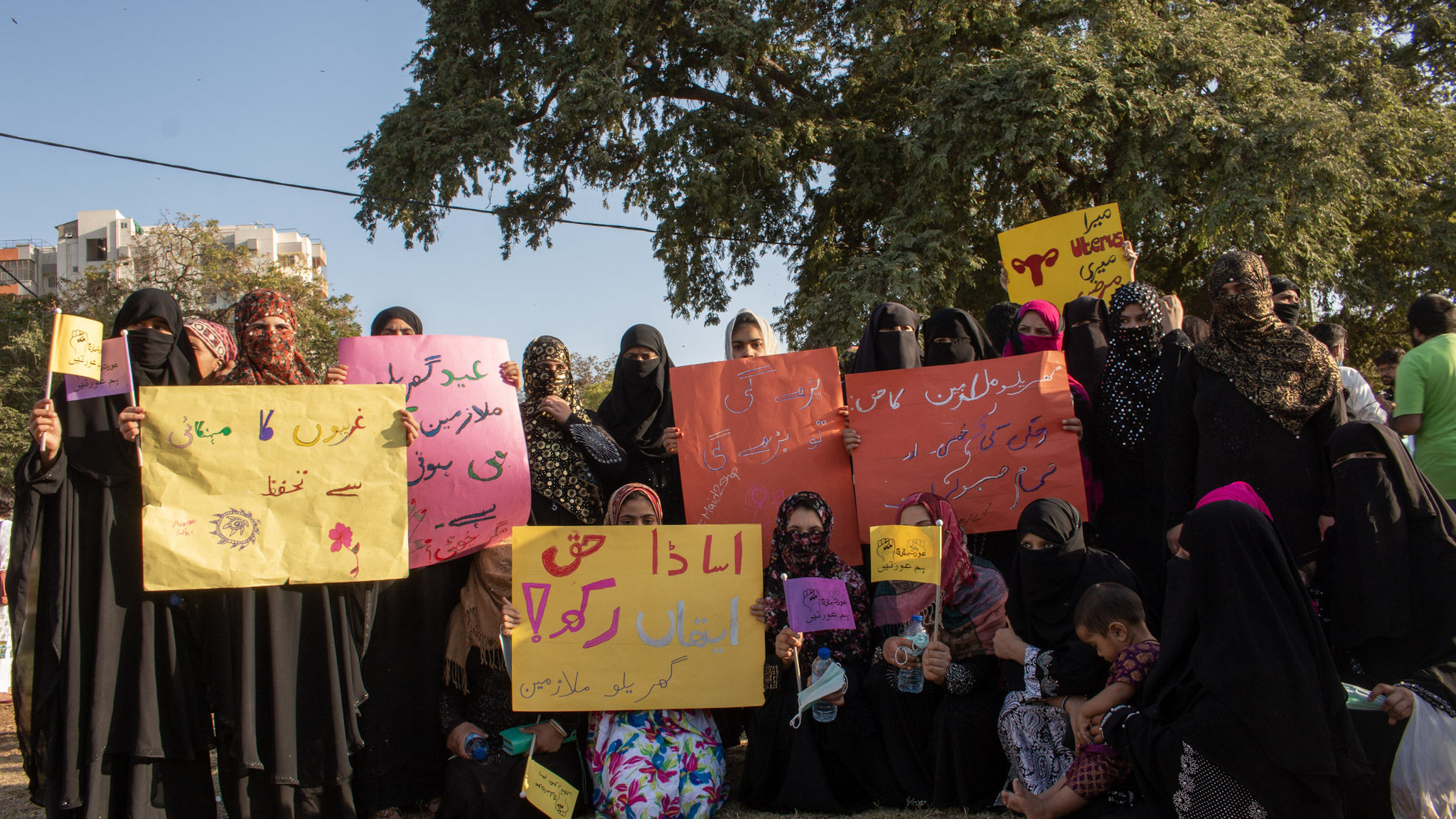 "We’ve come out today to demand basic rights for the working class from their rich employers," said Rani, a domestic worker. "All we want is for them to treat us like humans. Humans should treat other humans the same."
"We’ve come out today to demand basic rights for the working class from their rich employers," said Rani, a domestic worker. "All we want is for them to treat us like humans. Humans should treat other humans the same."Minorities against forced conversion
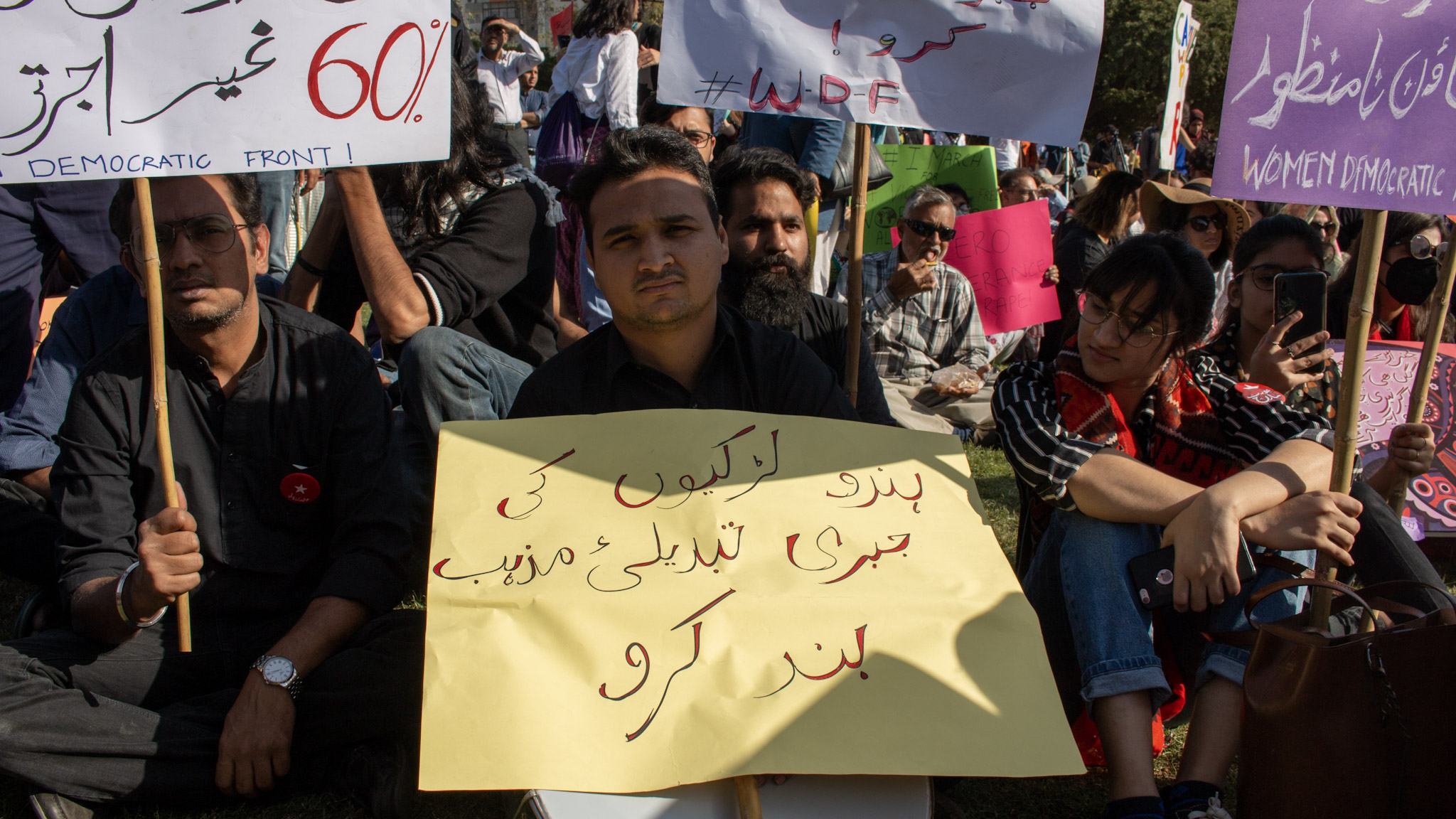 Sitting under the shade of the placards above him, a man had a basic demand for religious minorities - to put a stop to forced conversions of Hindu women.
Sitting under the shade of the placards above him, a man had a basic demand for religious minorities - to put a stop to forced conversions of Hindu women.Standing up for the voiceless
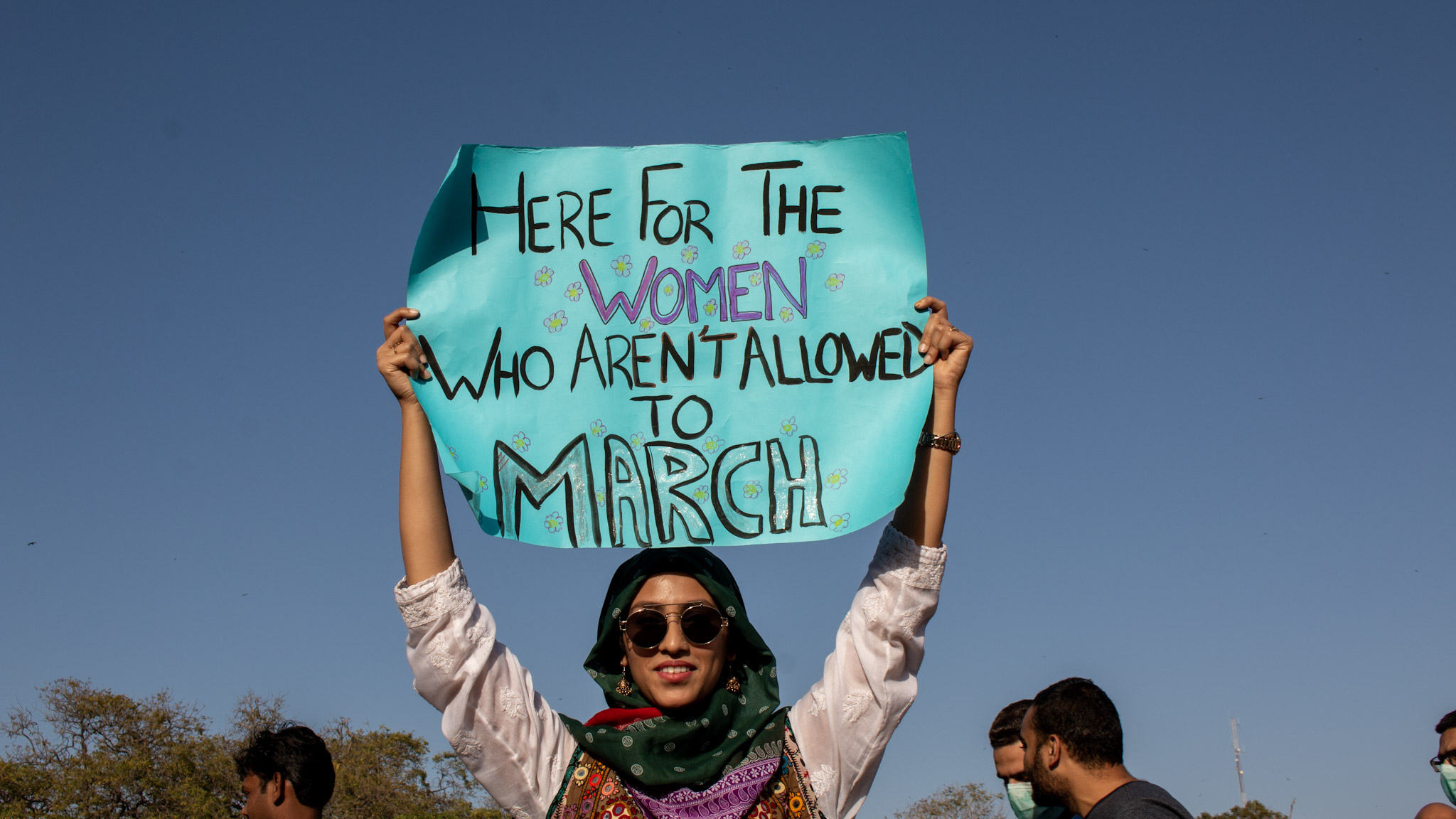 Zahra Khan Farooqi, a blogger, stood under the scorching heat for the women who weren't 'allowed' to. "I march for the women who are oppressed, for the Kashmiri women, for the women who go through sexual harassment and rapes."
Zahra Khan Farooqi, a blogger, stood under the scorching heat for the women who weren't 'allowed' to. "I march for the women who are oppressed, for the Kashmiri women, for the women who go through sexual harassment and rapes."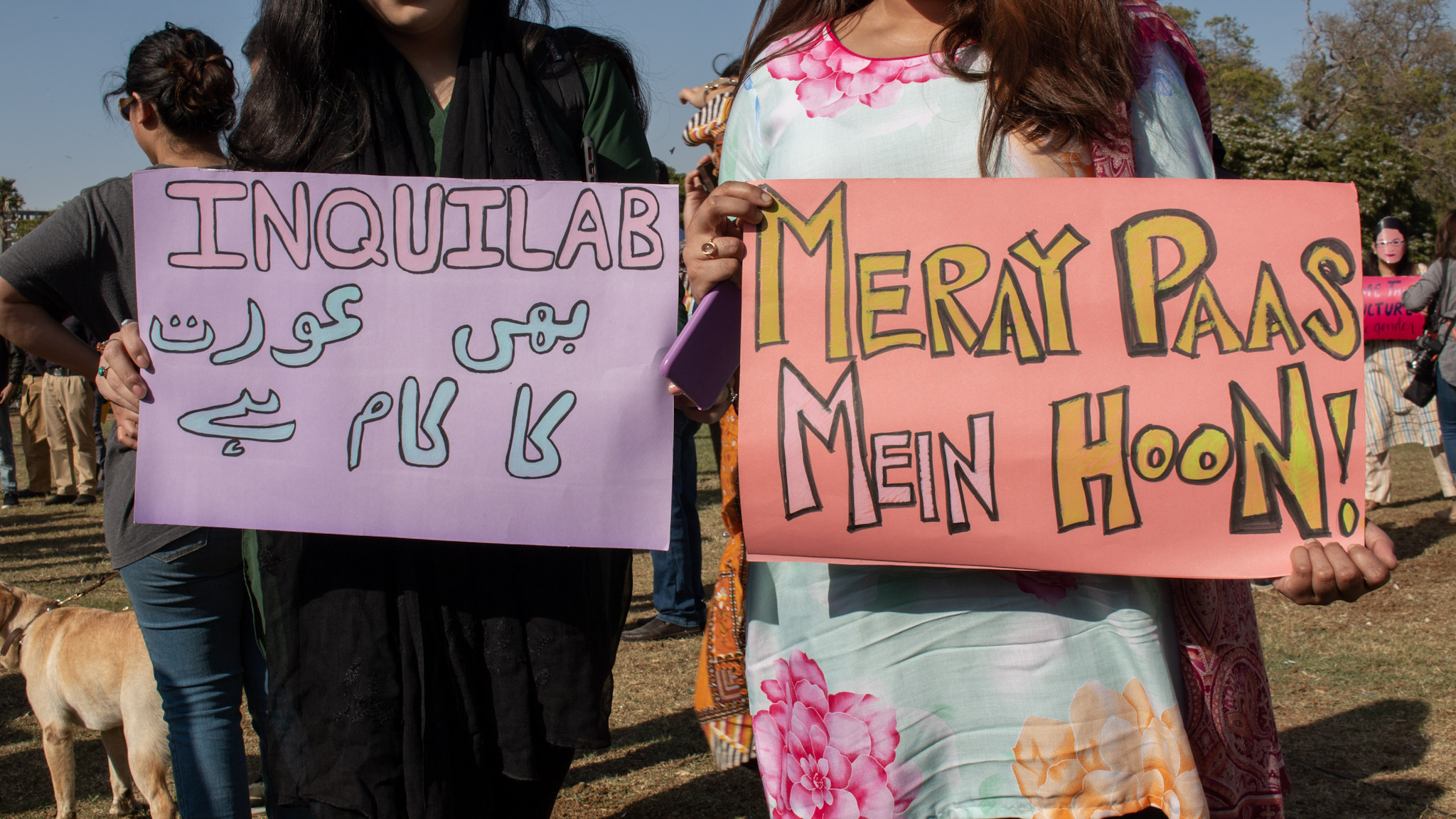 Two friends stood together to fight the good fight for their comrades who couldn't make it. "We’re fighting for the women who can’t fight for themselves. We march for the women who can’t march today."
Two friends stood together to fight the good fight for their comrades who couldn't make it. "We’re fighting for the women who can’t fight for themselves. We march for the women who can’t march today."'Honouring the dishonoured'
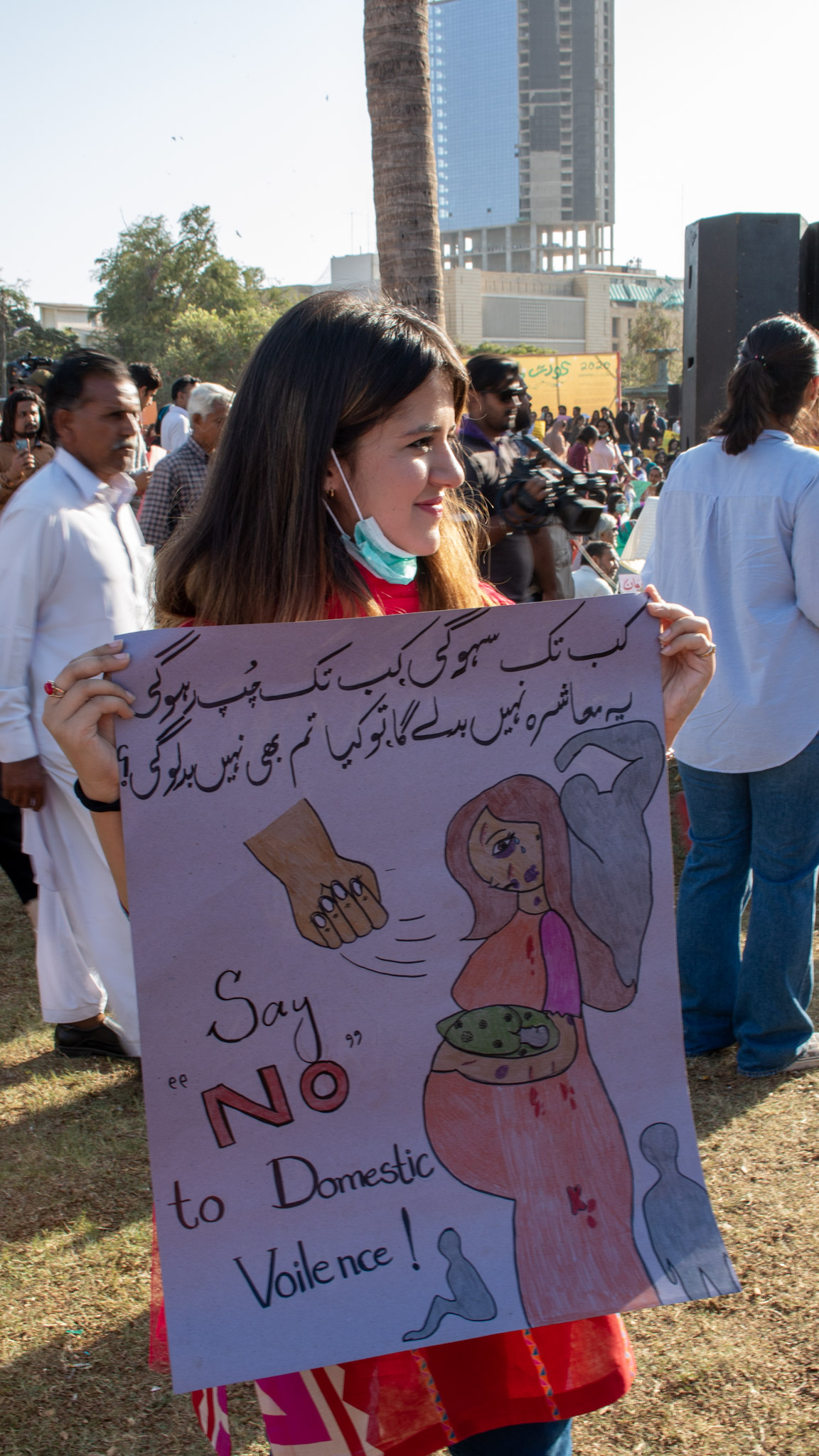 Alishba Farrukh marched against domestic violence. "I am marching for the lady who was electrocuted by her husband just because she wanted permission to visit her parent’s house."
Alishba Farrukh marched against domestic violence. "I am marching for the lady who was electrocuted by her husband just because she wanted permission to visit her parent’s house."'Feminism does not mean we hate men'
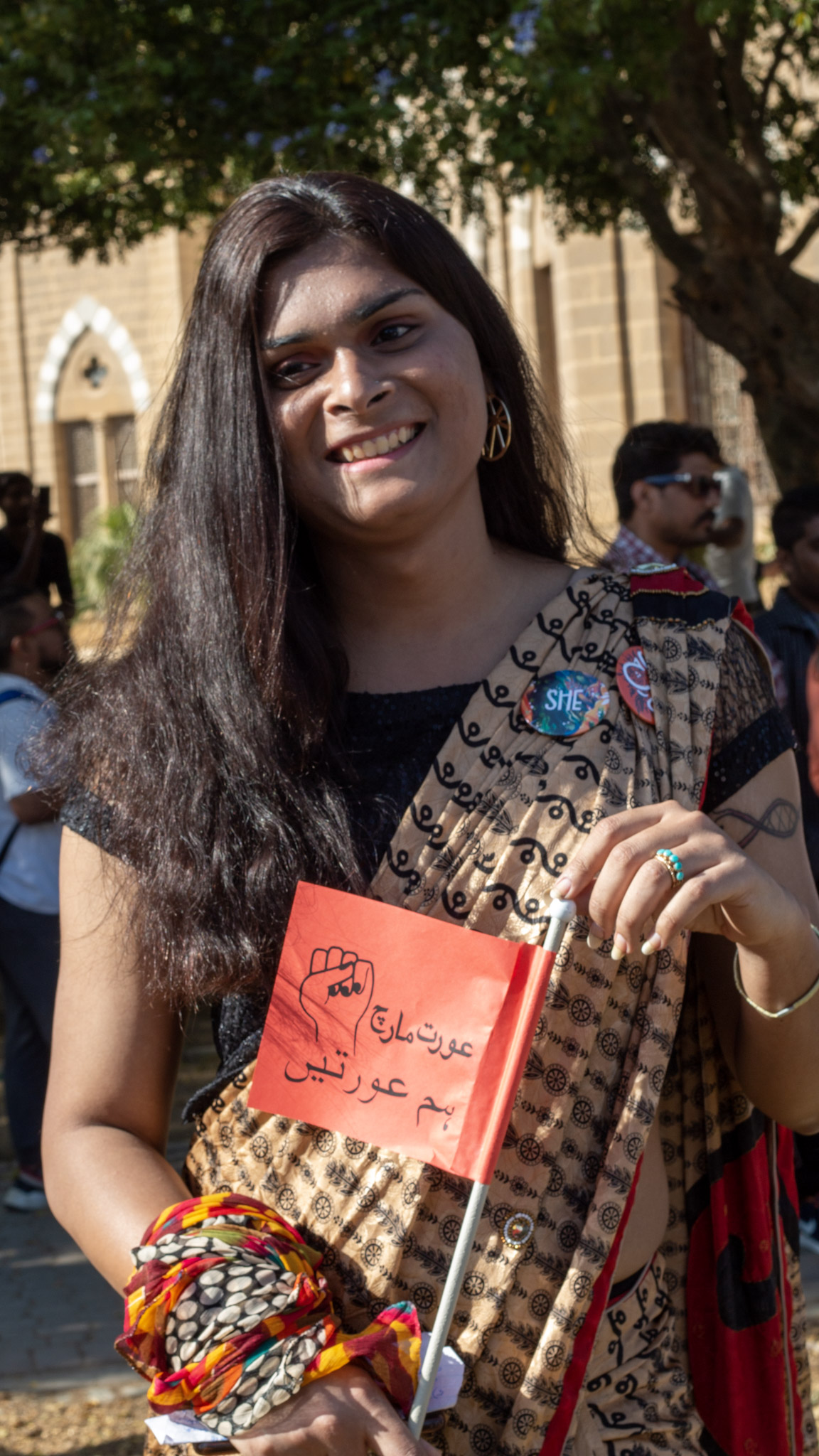 Trans-rights activist, Aradhya Khan set her demands loud and clear. “Today I’m marching for the transgender community, for women, for feminists, people with disabilities, for non-binary people because I believe we live in a very patriarchal society,"she asserted passionately.
Trans-rights activist, Aradhya Khan set her demands loud and clear. “Today I’m marching for the transgender community, for women, for feminists, people with disabilities, for non-binary people because I believe we live in a very patriarchal society,"she asserted passionately.She went on to explain, "Feminism does not mean that we hate men. All it means is that men, women and transgenders should be given equal rights and opportunities in society."
Men of quality
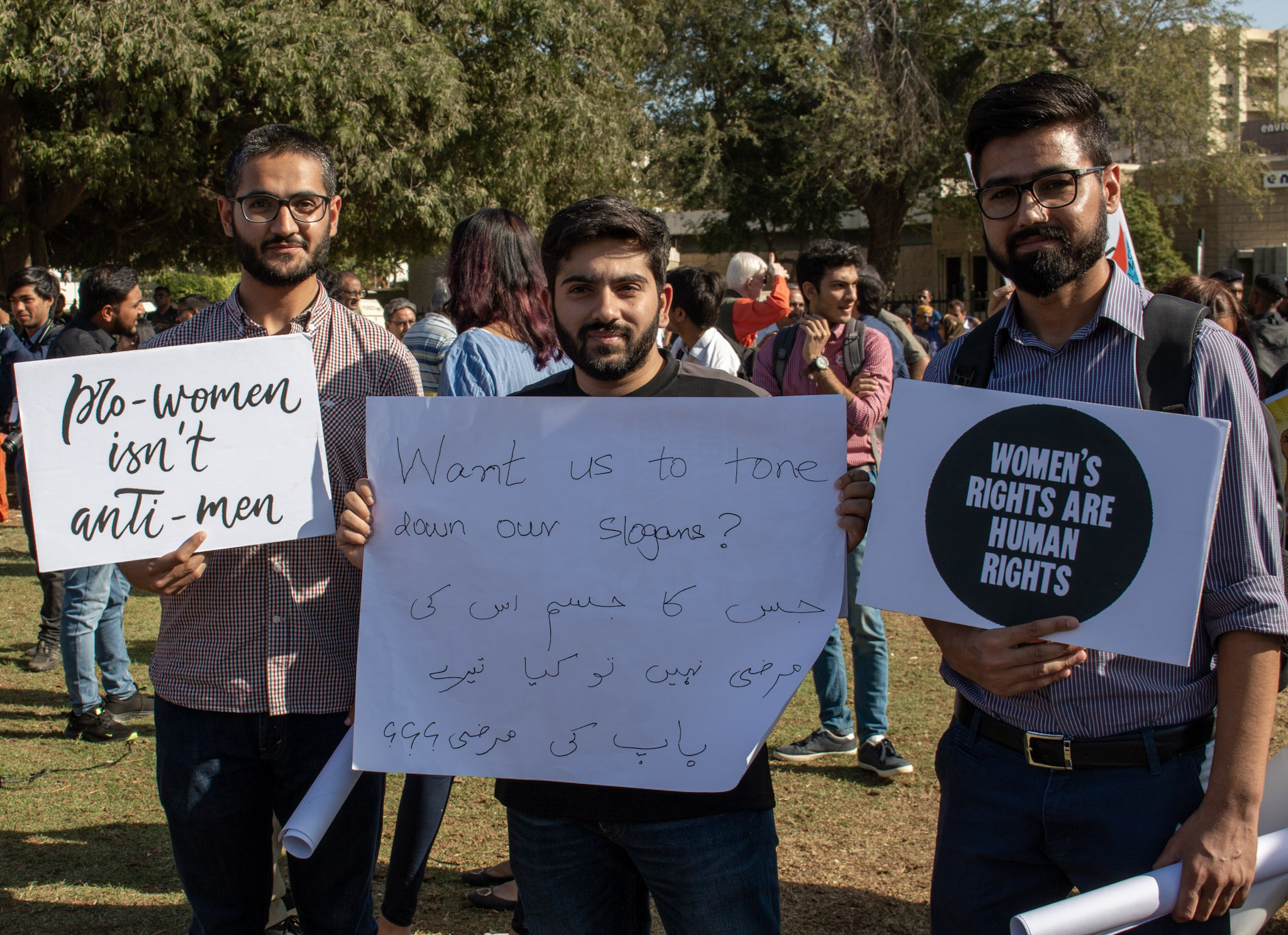 Men did not hold back either. "Women in our society are treated like alien species - as though they aren’t a part of our society, hidden from the public," said Imran. "I march for all the ladies and women, our mothers, sisters, wives whose full rights have not been given to them," his friend Waqas added.
Men did not hold back either. "Women in our society are treated like alien species - as though they aren’t a part of our society, hidden from the public," said Imran. "I march for all the ladies and women, our mothers, sisters, wives whose full rights have not been given to them," his friend Waqas added.Another ally, Shoaib broke it down further. "Most men have this misconception that if you’re pro-women then you must be anti-men but that’s not true. Raising your voice for women does not have to take away from being men or that you’re against men."
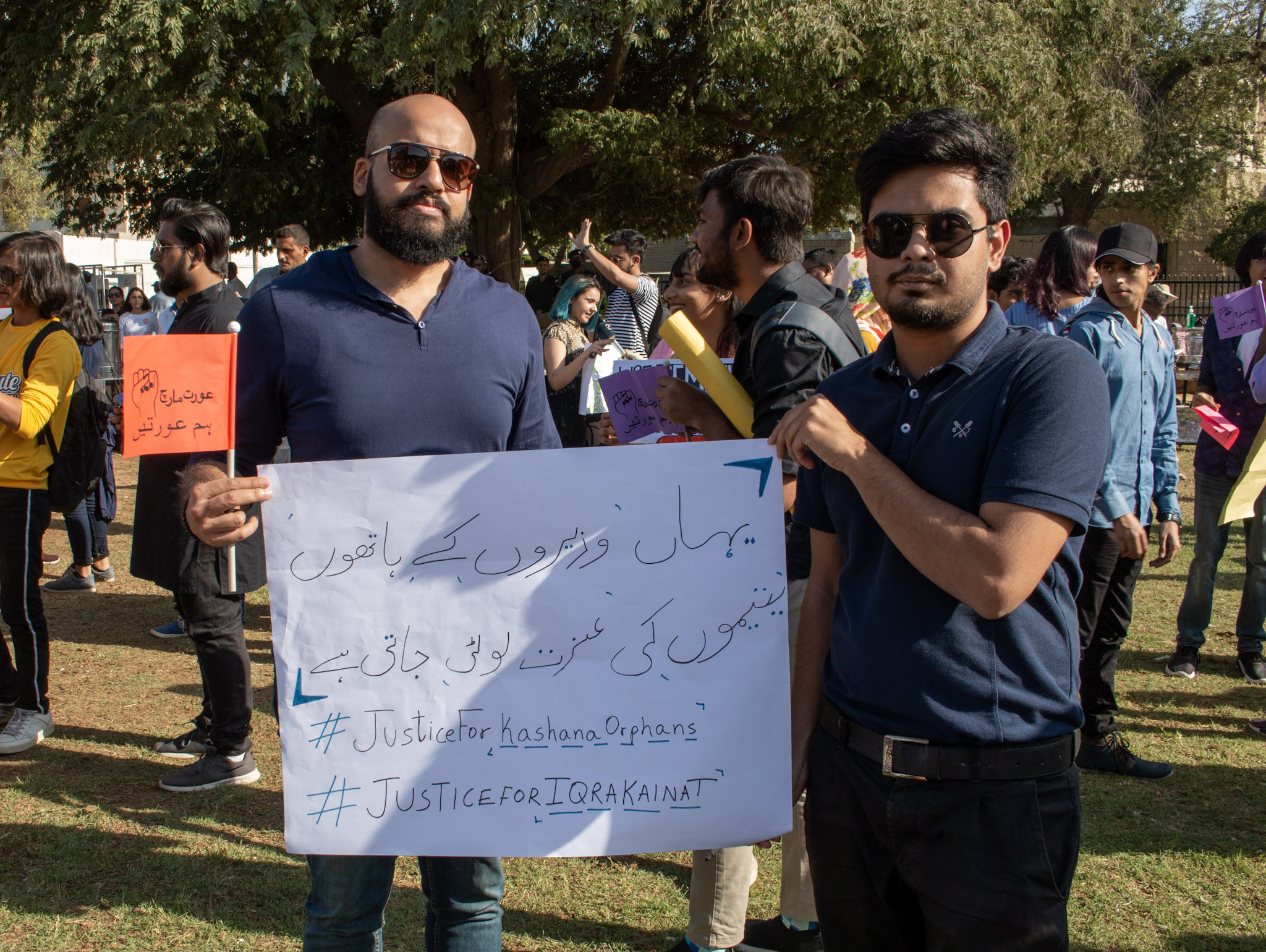 The silent cries of orphans echoed through Abu Bakr's words. "I stand for the rights of the orphans whose rights have been snatched away from them."
The silent cries of orphans echoed through Abu Bakr's words. "I stand for the rights of the orphans whose rights have been snatched away from them."Together, we stand
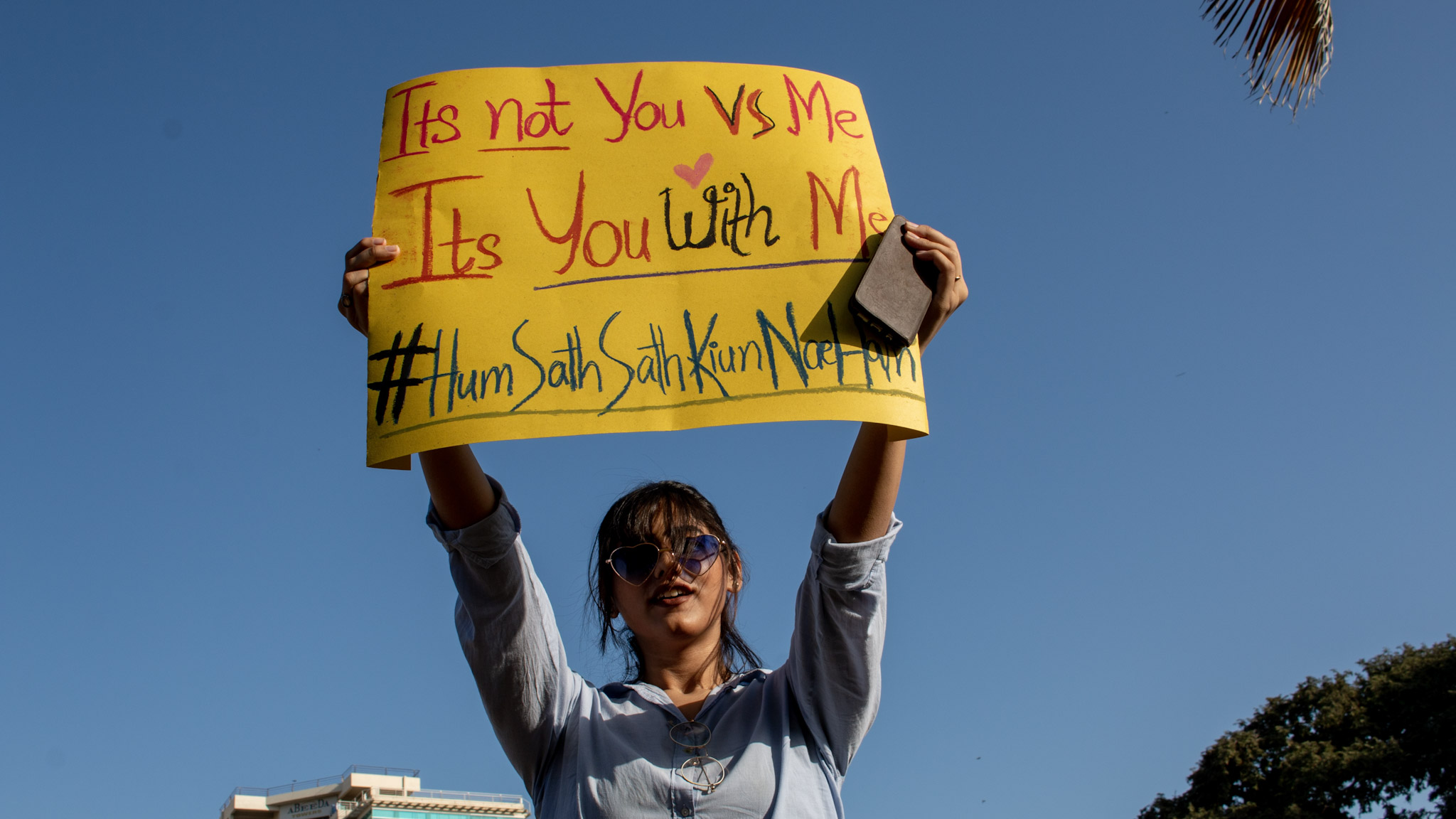 With slogans flying high in the blue sky, many rallied for unity using a language of love. 'It's not you vs. me. It's you with me,' read one placard. '#WhyAren'tWeTogether?'
With slogans flying high in the blue sky, many rallied for unity using a language of love. 'It's not you vs. me. It's you with me,' read one placard. '#WhyAren'tWeTogether?' 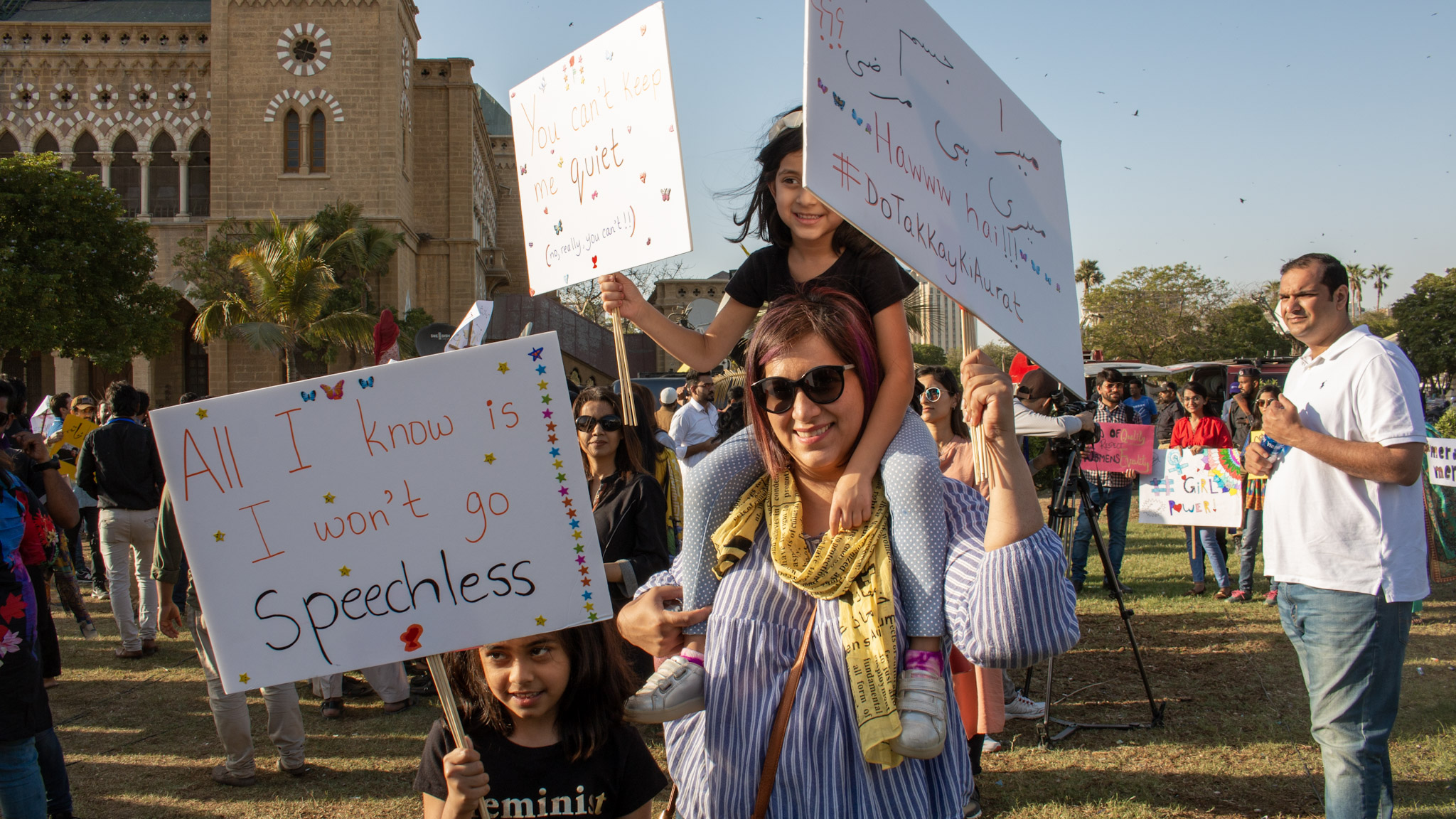 Strong mothers with their young daughters in tow came out to ensure a better tomorrow for them.
Strong mothers with their young daughters in tow came out to ensure a better tomorrow for them.Mothers of the movement
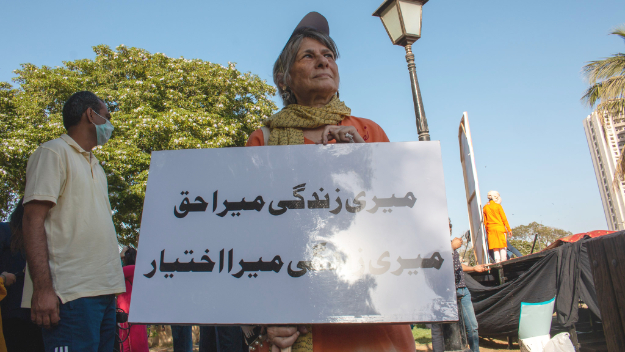
Among the chatter, an older woman quietly carried her sign with a mysterious smile. "My slogan means that my life is my right and I should have the power to make decisions about my life," she said with conviction.
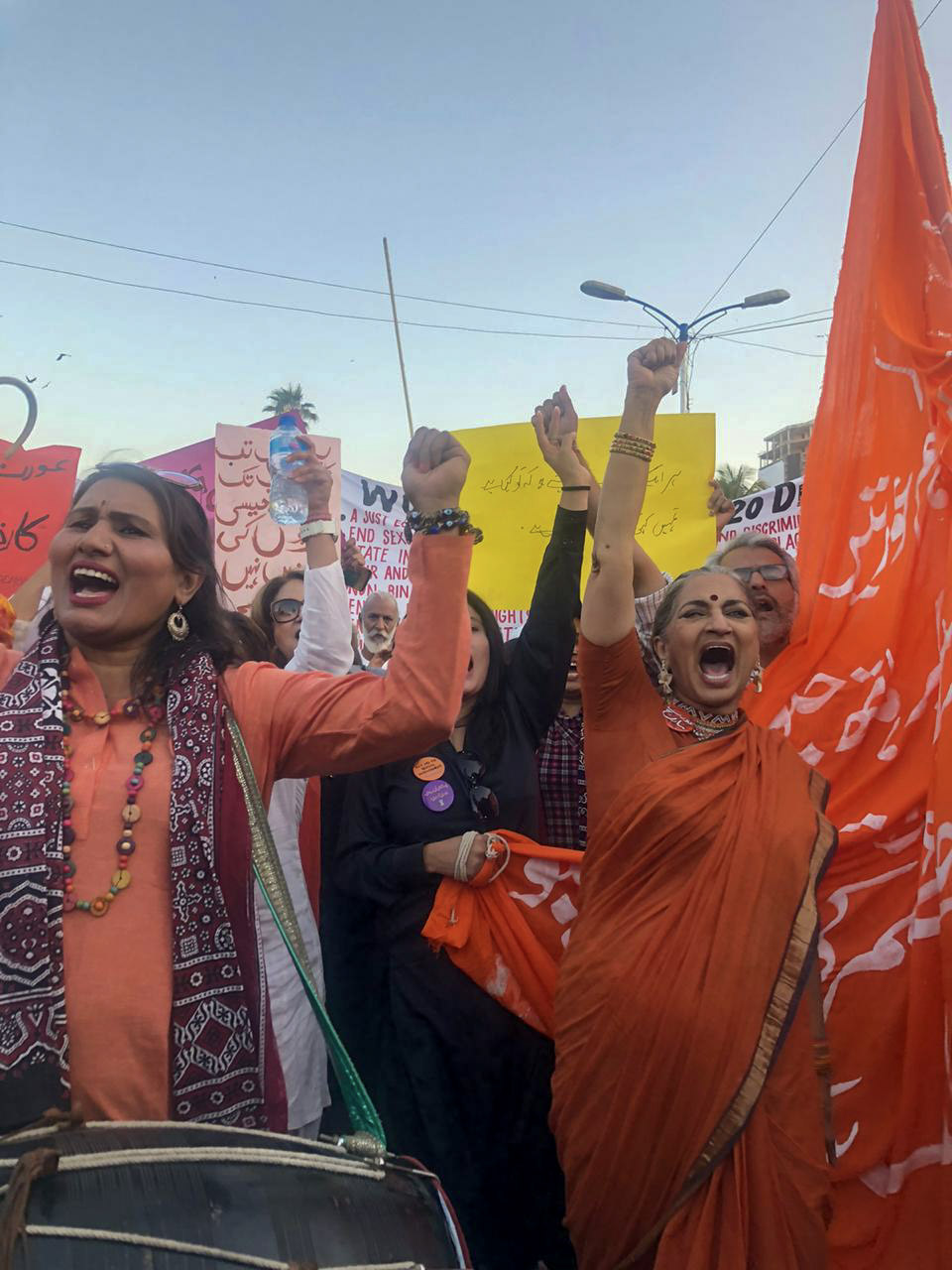 Photo: Yumna Aftab
Photo: Yumna Aftab"I march for women’s equality, plain and simple," said Sheema Kermani, founder of the Tehreek-i-Niswan Organisation.
Twirling freedom
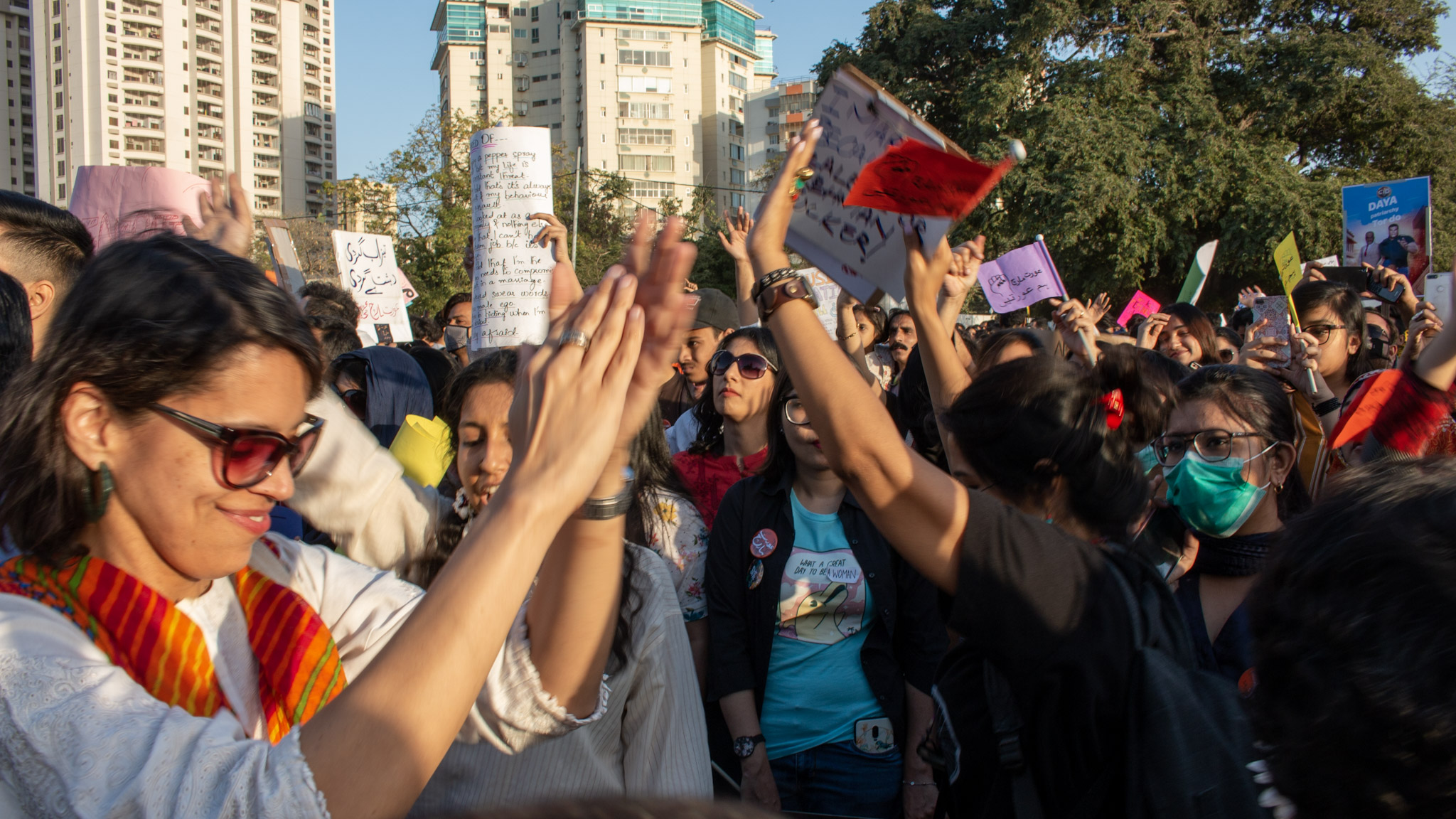 Photo: Women dance to Laal Meri at the Aurat March, Karachi: Sarah Price
Photo: Women dance to Laal Meri at the Aurat March, Karachi: Sarah PriceThe fight for freedom isn't always brutal, bloody and barbaric. Sometimes, all it takes is colours, courage and a little choreography to reclaim public spaces and to convey - 'I'm not afraid'.
The real protectors of women
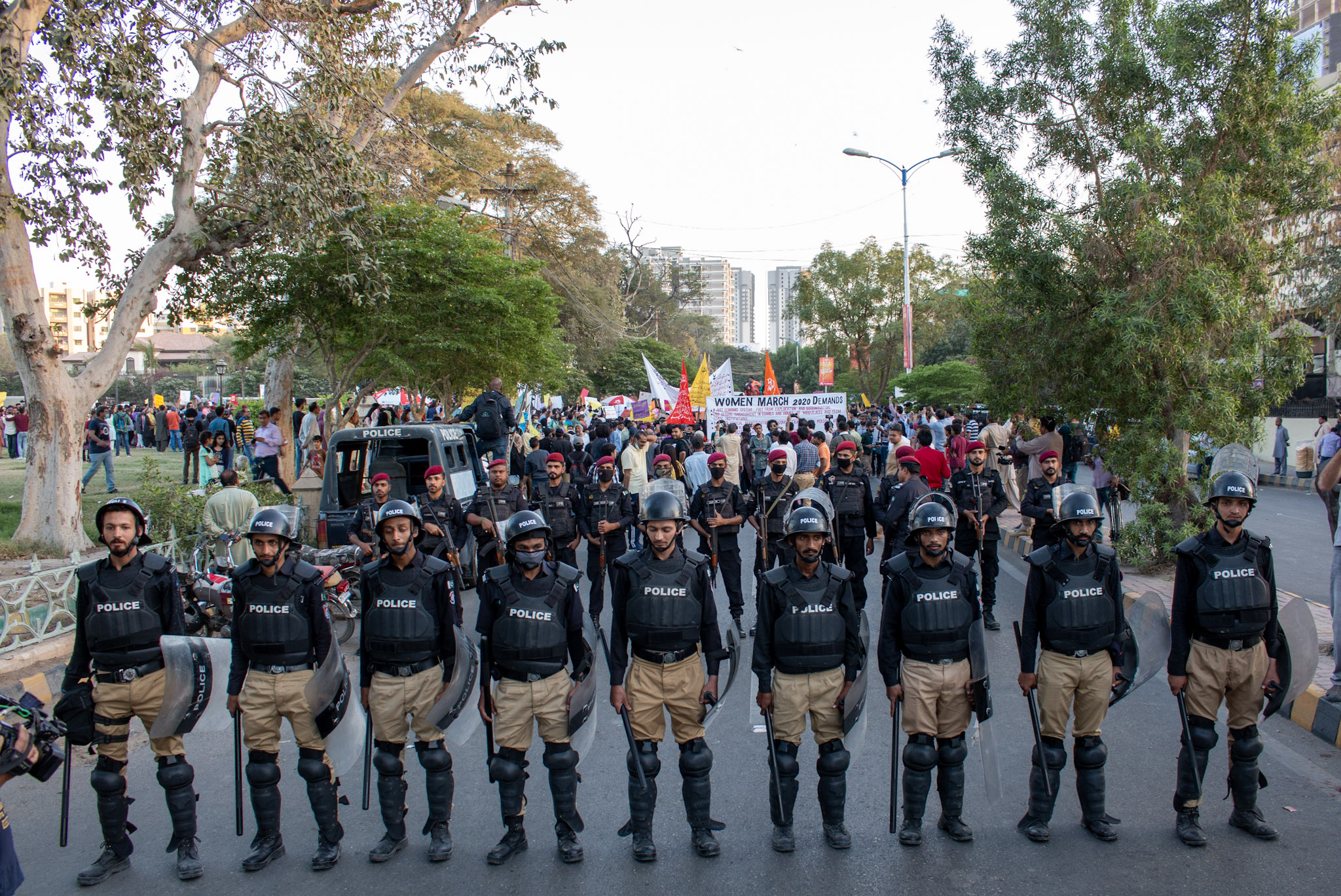
All marchers remained within four layers of tightly packed security, which included a human chain of volunteers to ensure safe execution of a peaceful protest. One layer also included female police officers.
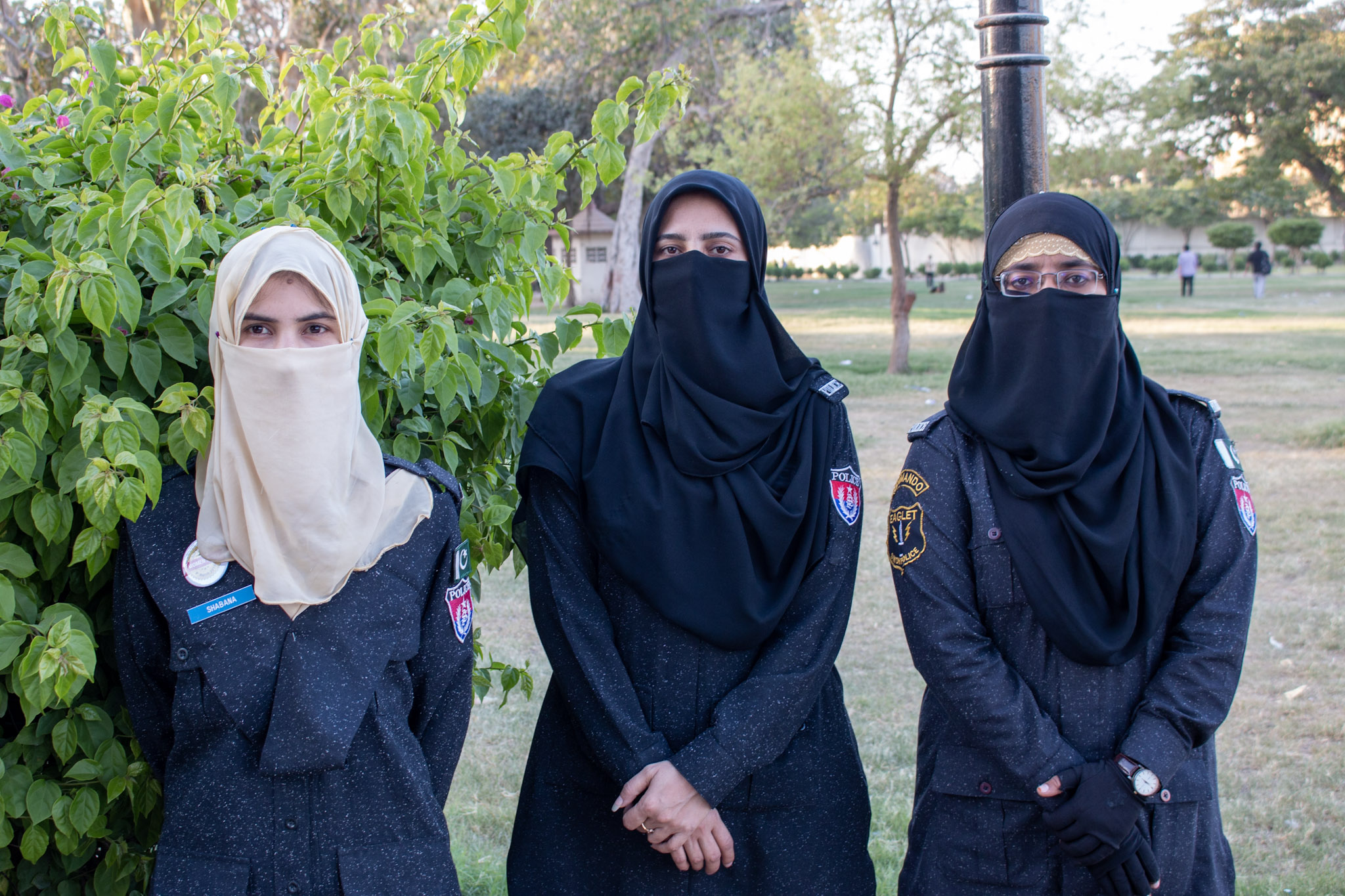 'Azaadi,' she sang
'Azaadi,' she sang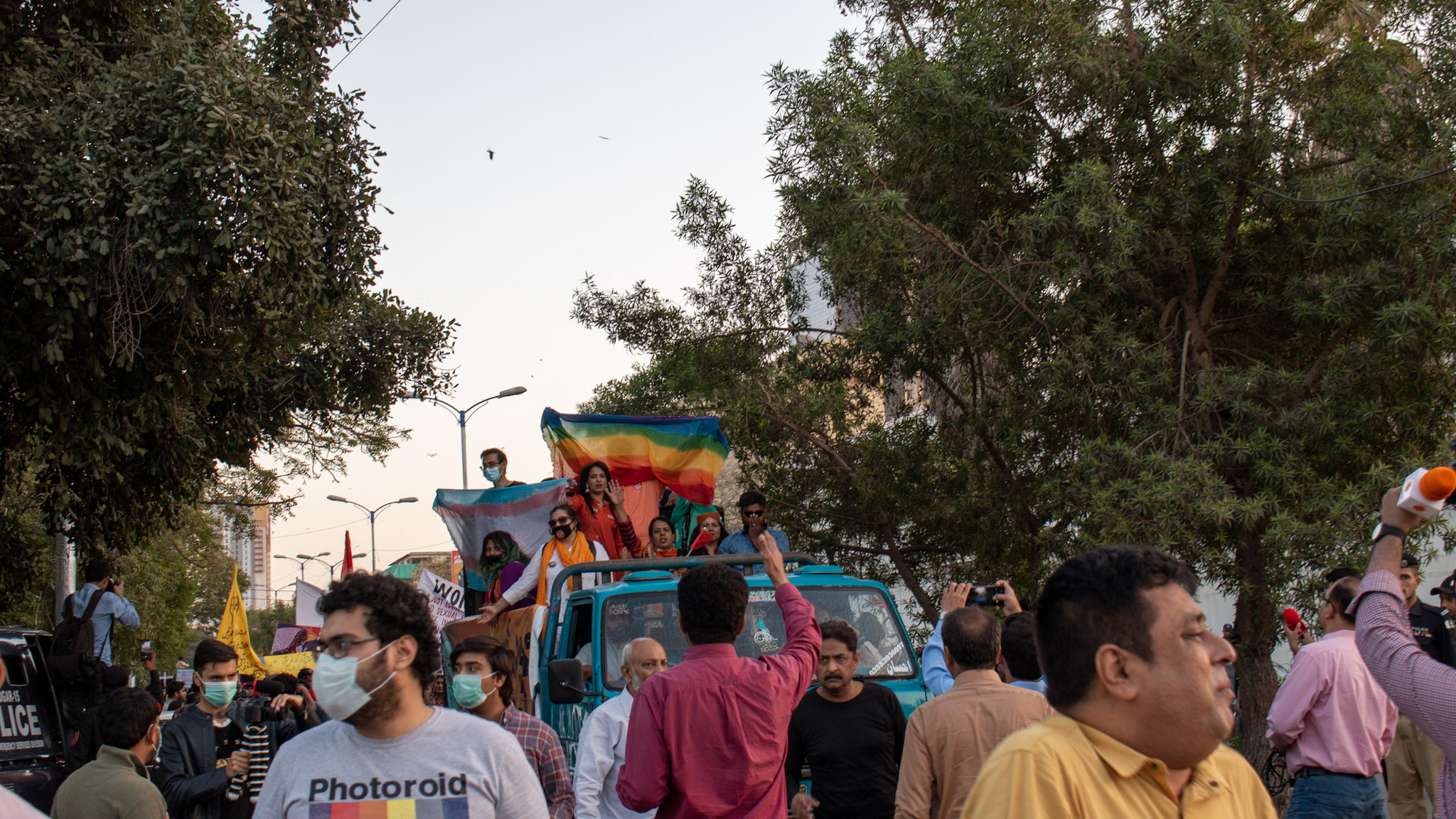
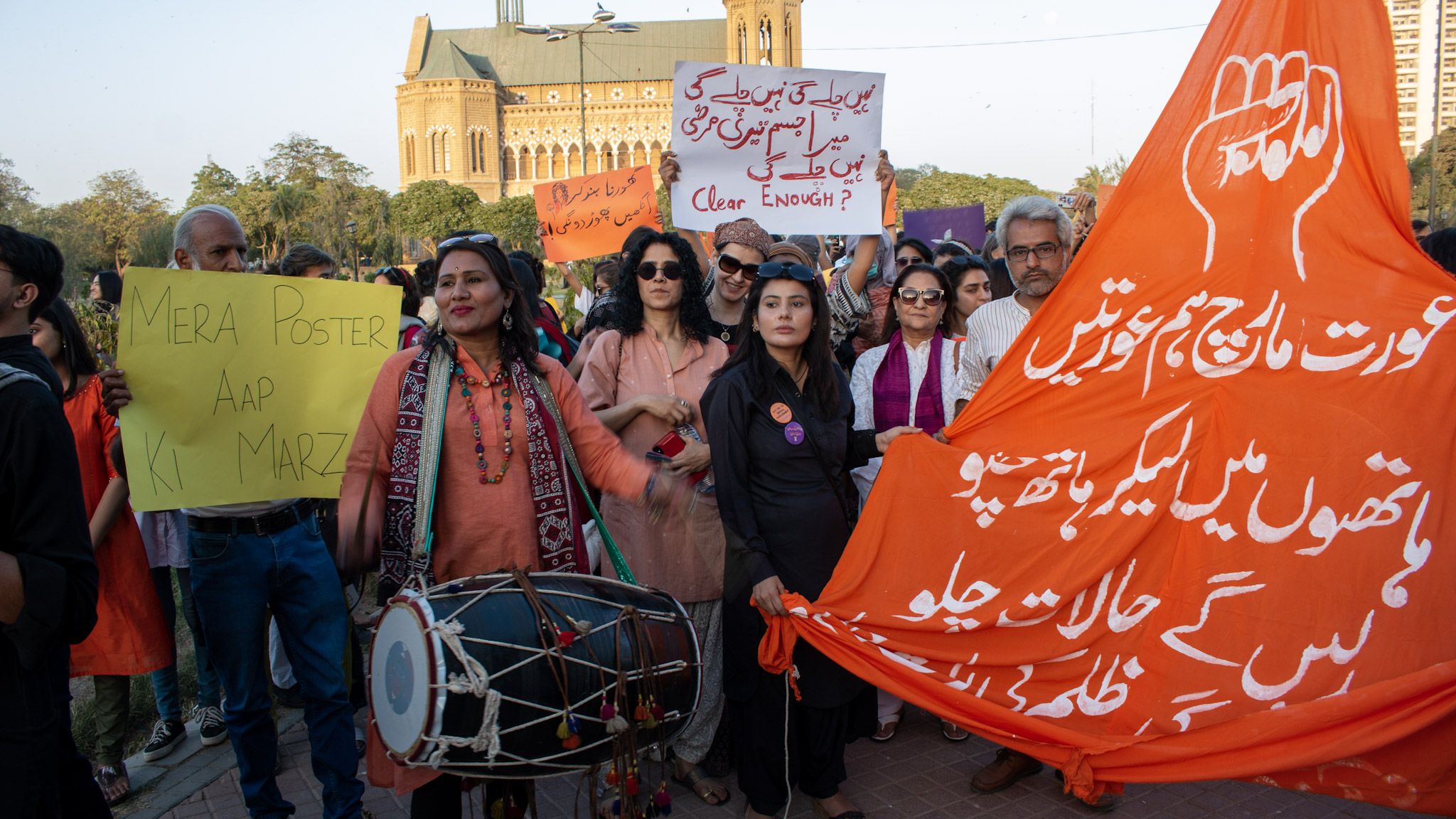
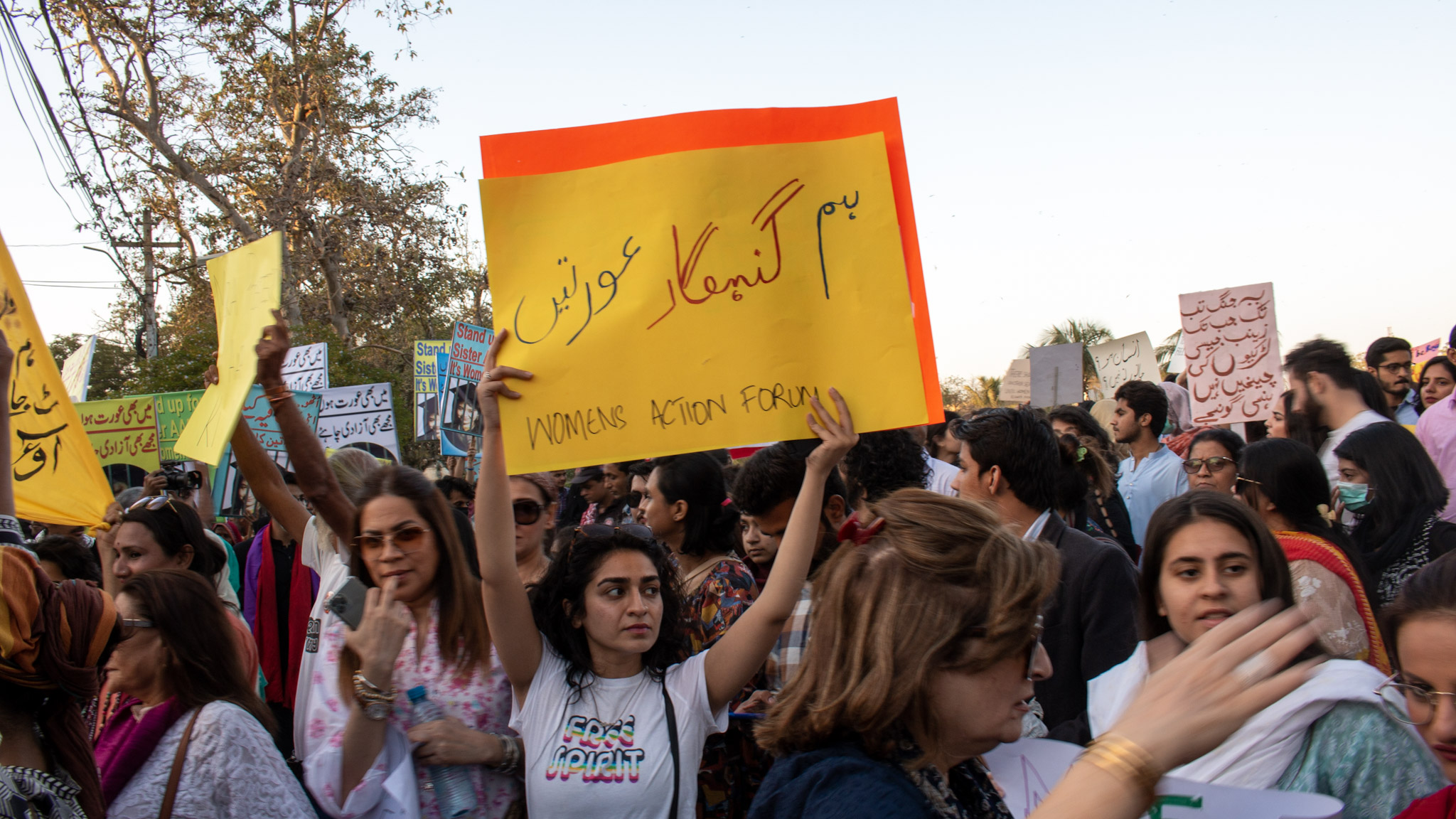 Photo: Actor Hajra Yamin joins the march: Sarah Price
Photo: Actor Hajra Yamin joins the march: Sarah PriceAs the sun set, the crowd's chants grew louder. People of every faith, class and creed marched to the beat of freedom. Hum Dekhenge (We will see) by Faiz Ahmed Faiz, recited by Iqbal Bano played into the night, igniting a sure fire in the hearts of the attendants.
Have something to add to the story? Share it in the comments below.

















COMMENTS
Comments are moderated and generally will be posted if they are on-topic and not abusive.
For more information, please see our Comments FAQ